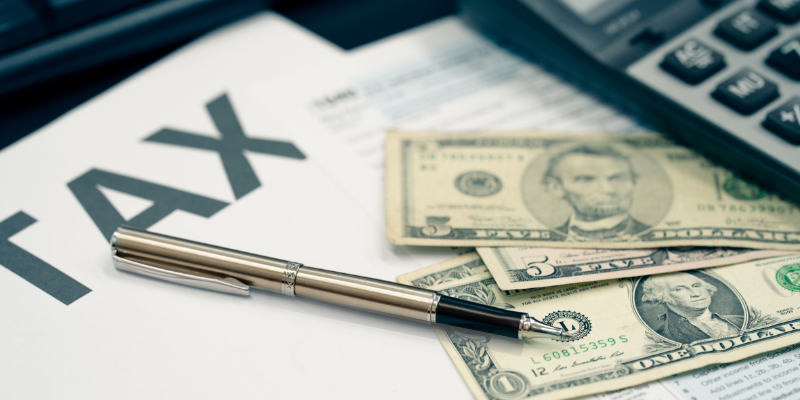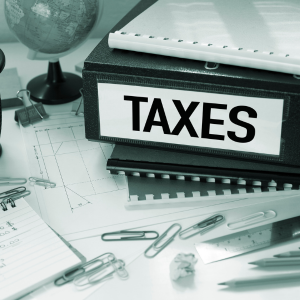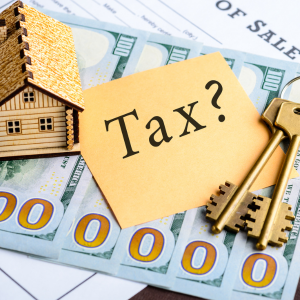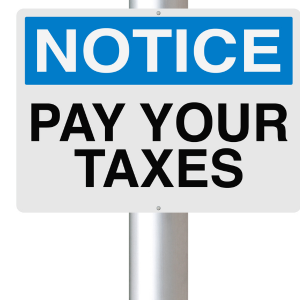
Understanding Land Tax Obligations in Florida: A Comprehensive Guide
Property owners and investors in Florida must understand land tax obligations, especially when considering paying someone else’s taxes. Florida law allows individuals to pay another’s property taxes through a tax certificate sale.
A lien on a property can result in ownership if the original owner fails to redeem the certificate by paying back taxes and interest, making this procedure crucial for real estate investment. This strategy can be a good investment, but it comes with risks and legal obligations.
Investors must understand Florida Statutes Chapter 197, which regulates tax collections, sales, and liens, to comply with state regulations. Understanding tax certificate deadlines and interest rates is essential to making informed decisions about such practices in Florida’s real estate market. Partnering with cash land buyers in Florida and surrounding cities can also streamline the investment process.
Important Considerations for Homeowners Regarding Florida’s Property Tax Rules
For homeowners, understanding the Florida property tax laws is important, especially when analyzing the complex situation of paying someone else’s property taxes. As far as taxes and real estate transactions go, property taxes are a matter of state law and local ordinances in Florida.
Florida law permits paying someone else’s property taxes; however, this does not create any interest or ownership stake in the property. A current property owner’s legal title will not be altered simply because a third party pays their property taxes, unless there are legal documents to that effect.
These rules must be understood by everyone in the real estate business in the state. In addition, tax lien sales, conducted by counties when owners default on their payments, give the opportunity to pay another’s tax to assume a tax lien certificate if the right procedures are followed.
This system lets any person or even some investors sell liens in a bid to earn interest on the loans or even get ownership through foreclosure if the former owner does not act to reclaim the loan. That said, navigating property tax laws in Florida requires thoughtful planning and working with real estate specialists or lawyers to protect their interests in property investments.
Paying Other People’s Property Taxes in Florida
In the state of Florida, when paying property taxes on behalf of someone else, there are clear, important legal issues, considerations, and implications. It is important to note that anyone can pay another person’s property taxes, but doing so does not mean that the payer holds any legal interest in or has an ownership claim to the property.

There’s something to note about the person paying the taxes. They should know about the property tax system in Florida, where unpaid property taxes can result in a tax certificate being sold at auction. If you choose to pay someone’s property taxes, make sure that you keep records and notify the property owner to prevent any disputes from arising.
Additionally, awareness of statutory law regarding deeds, real estate conveyancing, and other tax obligations for the Florida real estate market will help reduce legal risks. Consulting with a tax professional or attorney will also be helpful on the tax liabilities that come with someone else’s property tax liabilities by employing the Florida legal system.
Legal Consequences Involved by Paying Another Individual’s Property Tax in Florida
The paying of someone else’s property tax in Florida is something that should not be taken lightly, as it comes with steep legal consequences. In the event that someone wants to settle an individual’s property tax, in Florida, anyone can pay property taxes for a given piece of real estate. However, this does not mean that paying someone’s property tax will transfer ownership rights or create any obligation in the form of repayment from the property owner.
Instead, in Florida, paying someone else’s property taxes does result in business and opportunities, and paying off a tax certificate should none of the parties undertake the taxes. Additionally, the payer’s interest is not overridden, as they will continue to earn interest on their payment until the property’s payer redeems their payment in a certain timeframe.
These payments being unpaid for a period, expected to be two years, a tax certificate holder can commence the tax deed application procedure, which can lead to the title being forfeited in a public auction. Following through with this route has its challenges, including complying with complex statutory procedures and timeframes of the state’s tax laws. Failure to set these could
involve legal issues as well as challenges to the investment.
Hence, such parties should obtain expert advice in order to explore all the rights and responsibilities they may have under Florida law before making any payments towards the obligations of the other property owner.
Tax Burden Sharing: Exploring Potential Benefits and Associated Risks
Covering that of another’s in Florida real estate may offer a myriad of opportunities, but first, the advantages and disadvantages must be carefully analyzed. One major benefit to gain is the acquisition of the tax lien, which can eventually render the payer the owner if the property holder does not repay the debt within the specified time.
This strategy can be appealing to some investors because Florida law permits accruing high rates of interest on tax liens, thus providing the state with increased revenue. Additionally, covering the land taxes may also prevent the property from being foreclosed, thereby preserving the value of the property but also benefiting adjoining properties.
However, these opportunities come with significant risks. The original owner has the right to redeem their property by paying back the owed taxes plus interest within a certain period, which could nullify any ownership aspirations.
As to the prior point, Florida’s real estate market, like any market, has intricacies that need to be researched before construction begins. Investors must also meticulously work their way through the law’s red tape by following every single requirement, whether legal or regulatory, to avoid legal conflicts.
Familiarizing oneself with authoritative rules coupled with completing the necessary background checks will substantially eliminate risks while simultaneously optimizing decisions regarding Florida’s real estate market. Fast Land Offers can help guide you through the process with confidence.
Can You Acquire Property by Paying Its Back Taxes in Florida?
In Florida real estate, paying someone else’s property taxes does not automatically grant you ownership of the property. The process involves participating in a tax lien auction, where investors can purchase tax certificates on properties with delinquent taxes.
Winning bidders pay the outstanding taxes and earn interest until the homeowner redeems the certificate by repaying the debt. If the homeowner fails to redeem within two years, the certificate holder can initiate a foreclosure process to potentially acquire the property through a tax deed sale.
However, this method involves significant risks and does not guarantee acquiring ownership, as other parties may intervene or outbid during subsequent auctions. Understanding Florida’s complex legal framework surrounding tax lien investments is crucial for anyone considering this approach to acquiring real estate.
Navigating Real Estate Investment Through Delinquent Tax Payments
Navigating real estate investment through delinquent tax payments in Florida involves understanding the intricate legal framework surrounding property taxes. When property owners fail to pay their taxes, these unpaid obligations can lead to a tax lien, giving investors a unique opportunity.

By paying someone else’s property taxes, investors can potentially acquire a stake in the property through tax lien certificates. Florida’s laws allow investors to participate in auctions where they bid on these certificates, which offer returns when the original owner redeems the certificate by repaying the owed taxes along with interest.
If redemption does not occur within a specified period, investors may initiate foreclosure proceedings to obtain ownership of the property. This approach requires thorough due diligence and an awareness of deadlines and regulatory requirements specific to Florida’s real estate market.
Understanding how tax liens work and strategizing around them can be a profitable venture for those looking to expand their real estate portfolio while navigating the complexities of Florida’s legal landscape regarding delinquent property taxes.
Strategies for Managing Overdue Property Taxes in Florida
In Florida real estate, managing overdue property taxes requires careful consideration of various legal strategies to ensure compliance and protect investment interests. One common approach is to explore the possibility of paying someone else’s property taxes, which can be a viable strategy for investors looking to acquire distressed properties with delinquent tax bills.
By paying the overdue taxes on a property, individuals can potentially secure a lien on the property, which might eventually lead to ownership if the original owner fails to repay the amount within a specified redemption period. However, it’s crucial to understand that this process is governed by specific Florida statutes, and potential investors must navigate these regulations carefully.
Engaging with local tax authorities or consulting with real estate attorneys familiar with Florida’s tax laws can provide valuable insights into mitigating risks associated with such transactions. Additionally, staying informed about tax certificate sales and understanding how tax deeds work are essential components in successfully managing overdue property taxes in Florida real estate markets.
What Happens When You Pay Off Someone Else’s House Taxes?
When you pay off someone else’s property taxes in Florida, it doesn’t automatically grant you ownership of the property. Instead, it can initiate a process that may eventually lead to acquiring a tax deed if certain conditions are met.
Initially, paying another person’s property taxes results in obtaining a tax lien certificate, which signifies your investment in the debt owed by the property owner. This certificate is an interest-bearing financial instrument that offers you priority over other creditors but does not convey any immediate rights to the property itself.
The original owner retains the right to redeem their property by reimbursing you the amount you’ve paid, along with any accrued interest, within a specified redemption period. If this redemption does not occur within that timeframe, typically two years in Florida real estate, you can proceed to apply for a tax deed sale through the county.
At this point, if successful at auction and no redemption takes place before issuance of a tax deed, you might obtain legal title to the property. This complex process underscores the importance of understanding local laws and regulations regarding property taxes in Florida real estate transactions.
Understanding Tax Lien Certificates and Their Role in Real Estate Investment
In the realm of Florida real estate, understanding tax lien certificates is crucial for investors looking to capitalize on distressed properties. When property owners fail to pay their property taxes, local governments issue tax lien certificates as a method of recouping the owed taxes.
These certificates are then auctioned off to investors, granting them the right to collect the unpaid taxes plus interest from the property owner. If the owner does not repay within a specified redemption period, typically two years in Florida, the investor may have the opportunity to foreclose and potentially acquire ownership of the property.
This process allows investors to earn returns through interest payments or by acquiring valuable real estate below market value. However, navigating this legal landscape requires careful consideration of state-specific regulations and diligent research into each property’s background, as well as an understanding of potential risks associated with liens and foreclosure proceedings.
How to Legally Assume Ownership Through Tax Deed Sales in Florida
In Florida real estate, understanding the process of legally assuming ownership through tax deed sales is crucial for investors interested in acquiring properties by paying delinquent property taxes. When a property owner fails to pay their property taxes, the county can place a lien on the property and eventually auction it off at a tax deed sale.
To participate in these sales, potential buyers must first register with the county’s tax collector’s office and often secure funds sufficient to cover the outstanding taxes, interest, and administrative fees. Once a bidder successfully purchases a tax deed at auction, they are granted legal rights to the property, but it’s essential to be aware of any redemption periods during which the original owner may reclaim their property by settling their debts. For those looking to transition properties quickly after purchase, we buy land in Florida and other states, which can be a helpful solution.

Conducting thorough due diligence before participating in tax deed sales is imperative to identify any existing liens or encumbrances that may affect future ownership rights. By complying with Florida statutes governing tax deed sales and understanding all associated risks and procedures, investors can effectively leverage this method as a strategic entry point into real estate investment portfolios.
FAQs
Can I Pay Someone Else’s Land Taxes?
In the realm of Florida real estate, understanding the legality of paying someone else’s property taxes is crucial. Many individuals inquire, “Can I pay someone else’s land taxes?” The answer is yes; however, this action comes with specific legal implications and potential benefits.
Paying another person’s property taxes in Florida might lead to acquiring a tax lien certificate, which can be advantageous for investors seeking a return on investment or even eventual ownership of the property through a tax deed sale if the original owner fails to redeem the taxes within a designated period. However, it’s essential to navigate this process carefully, as each county may have distinct regulations governing tax lien sales and redemptions.
Those considering paying someone else’s property taxes must thoroughly research Florida’s real estate laws and consult with professionals to ensure compliance and maximize their investment opportunities while minimizing risks associated with tax lien acquisitions.
Can Someone Else Pay My Property Taxes in Florida?
In Florida, it is indeed possible for someone else to pay your property taxes, and understanding the legality of this action is crucial for both property owners and those considering making such payments. When an individual or entity pays another person’s property taxes in Florida real estate, they are essentially helping prevent the property from becoming delinquent and potentially subject to a tax lien or tax deed sale.
However, paying someone else’s property taxes does not automatically grant any legal rights or ownership over the property. The original owner retains full ownership unless other legal agreements are made.
It’s important for both parties to have clear communication and possibly formalize their agreement through a contract to avoid misunderstandings. Those paying the taxes should also be aware that while they can help maintain the property’s standing with local authorities, they do not gain any claim to the title simply by covering these expenses.
For anyone involved in Florida real estate transactions involving tax payments on behalf of others, consulting with a real estate attorney can provide valuable guidance on navigating these legal nuances effectively.
How Many Years Can Property Taxes Go Unpaid in Florida?
In Florida, property taxes are a critical component of real estate ownership, and understanding the timeline for unpaid property taxes is essential. Legally, property owners in Florida have until March 31st of each year to pay their property taxes without incurring penalties.
However, if these taxes remain unpaid after this deadline, they become delinquent on April 1st. At this point, the local county tax collector will begin the process of issuing a tax certificate on or before June 1st through a public auction.
This certificate acts as a lien against the property and allows investors to pay off the outstanding taxes in exchange for earning interest over time. The original property owner has a redemption period during which they can repay the owed amount along with any accrued interest to clear this lien.
In Florida, this redemption period lasts for two years from the date of delinquency. If after two years the property taxes remain unpaid and no action has been taken to redeem the tax certificate, the certificate holder may apply for a tax deed sale through the county where the real estate is located.
Understanding these timelines is crucial when considering paying someone else’s property taxes as an investment strategy in Florida real estate.
Can I Claim Property Taxes I Paid for Someone Else?
When considering the legality of paying someone else’s property taxes in Florida real estate, it’s essential to understand the implications for both parties involved. In Florida, if you pay someone else’s property taxes, it does not automatically grant you ownership rights or any legal claim over the property.
This action is often seen in investment strategies or when assisting a distressed property owner. However, paying another person’s property taxes could potentially lead to adverse possession claims after meeting specific legal criteria over an extended period.
It is crucial to consult with a real estate attorney to comprehend the nuances of such transactions fully. Tax liens may arise if property taxes remain unpaid, and by settling these debts on behalf of the owner, an investor might gain some leverage but not outright ownership.
Always ensure due diligence and legal guidance when engaging in activities related to paying someone else’s property taxes in Florida real estate to protect your financial interests and adhere strictly to state laws and regulations.
Need to sell your land? Sell fast and enjoy a hassle-free sale with Fast Land Offers. We provide fair cash offers, manage everything, and make the process easy. Ready to sell or have questions? Call us at (843) 606-1001 for a no-obligation offer. Start today!
| TAXPAYERS | FLA. | TAX SALE | LAWYER | CASH | TAXPAYER |
| LANDOWNER | LAND OWNERSHIP | REIMBURSEMENT | MONEY | POLICY | |
| MORTGAGE | MARKETING | LIABILITY |